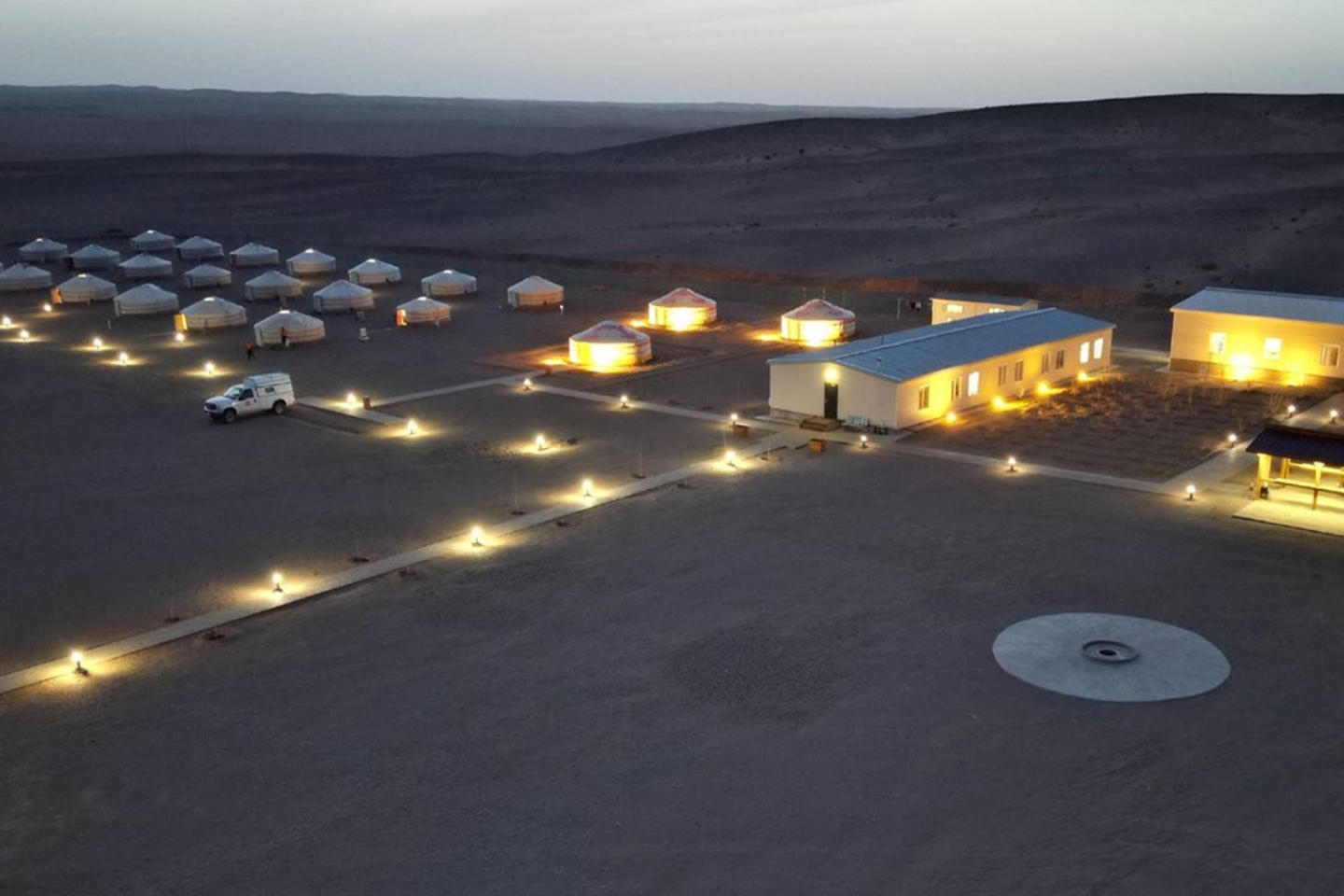Xanadu Mines has unveiled a prefeasibility study of biblical proportions at its Kharmagtai copper-gold project in Mongolia’s South Gobi Desert, including a pre-tax US$1.4 billion NPV, an IRR of 31 per cent at spot commodity prices and a mine life of nearly three decades. The study confirms the project’s potential as a globally-significant, low-cost, long-life mining operation.


Xanadu Mines has unveiled a prefeasibility study (PFS) of biblical proportions at its Kharmagtai copper-gold project in Mongolia’s South Gobi Desert, including a pre-tax US$1.4 billion (AU$2.1 billion) NPV and a mine life of nearly three decades.
The study – which confirms the project’s potential as a globally significant, low-cost, long-life mining operation – outlines a robust 29-year mine life with a internal rate of return (IRR) of 21 per cent, marking Kharmagtai as a crucial pillar in bridging the growing global copper supply-demand gap. It also features an annual EBITDA of more than US$293.1 million (AU$435 million) for the life of the mine.
Importantly, the 18-month long study uses only conservative commodity price assumptions, with a gold price at just US$2100 (AU$3116) per ounce – considerably lower than the surging current highs of US$2670 (AU$3962) and a copper price at just US$4.10 per pound.
With a four-year payback period and initial capital expenditure projected at US$890 million (AU$1.32 billion), the company says the project demonstrates strong financial viability – particularly as using spot commodity prices pushes the IRR up to 31 per cent and a three-year payback period, alongside a staggering pre-tax NPV of US$2.67 billion (AU$3.96 billion).
Management is forecasting a production of 60,000 tonnes of copper a year, in addition to 170,000 ounces of gold per annum for an initial eight years, before moving to 80,000 tonnes of copper and 165,000 ounces of gold annually across the final two decades of production, in what is planned as a two-staged expansion of the mine.
The estimated all-in sustaining cost (AISC) for the first eight years is set at US$1.25 per pound of copper, positioning the project within the world’s lowest cost quartile for production of the red metal. The lowest quartile costs fundamental ensures projected economic viability of the project in spite of potential commodity volatility, with the more costly producers predicted to close before Kharmagtai would feel the pinch.
Xanadu Mines executive chairman and managing director Colin Moorhead said: “This confirms to an international PFS standard that Kharmagtai is a world-class copper asset, located in a region of the South Gobi which hosts several significant deposits, including those at Rio Tinto’s Oyu Tolgoi mine. The future development of Kharmagtai into a long-life, low-cost, mine will provide significant value to our shareholders and multi-generation employment and economic opportunity for our stakeholders in Mongolia.”
The staggering details for the operation also include a proposed initial-phase 26 million-tonne per annum (Mtpa) processing capacity that will double to 52Mtpa after year eight.
During its life, the project will aim to process 1.27 billion tonnes of ore, producing 2.2 million tonnes of copper and 4.8 million ounces of gold. The project also benefits from a low strip ratio of 0.6:1 in the first eight years, ensuring reduced mining complexity and costs.
Xanadu has simultaneously tabled a mineral resource upgrade and a maiden ore reserve for the project, dropping the open-pit resource grade cut-off to 0.13 per cent copper equivalent. It results in an increased resource estimate of about 20 per cent to now sit at 2.2 billion tonnes at 0.21 per cent copper and 0.15 per cent gold for some 4.7 million tonnes of contained copper and some 11 million ounces of gold.
The company will now move forward to the final pre-construction stage of development at Kharmagtai and expects to complete an international standard bankable feasibility study (BFS) before construction begins in Mongolia in 2026.
The massive development and operational duties at the project will now be carried out by joint venture (JV) partner and Chinese behemoth Zijin Mining, which has a market capitalisation estimated at US$63.2 billion (AU$93.8 billion).
Xanadu and Zijin have evenly split the JV through Khuiten Metals, which controls 76.5 per cent of the project. It effectively provides Xanadu with a 38.25 per cent interest in the mammoth copper-gold project.
The company has engaged in preliminary financing discussions with several potential backers, confident that the project’s strong fundamentals and strategic partnerships, including with Zijin Mining, will aid in securing the necessary funding.
Kharmagtai is now poised to become a major contributor to global copper supply, particularly as the world transitions to a more electrified economy.
With a mine life of nearly three decades, Chinese major partner Zijin will no doubt be eager to progress the mammoth project and build its foothold in the growing South Gobi copper region – a jurisdiction that is already home to Rio Tinto’s world-class Oyu Tolgai copper-gold mine.
Is your ASX-listed company doing something interesting? Contact: matt.birney@businessnews.com.au












